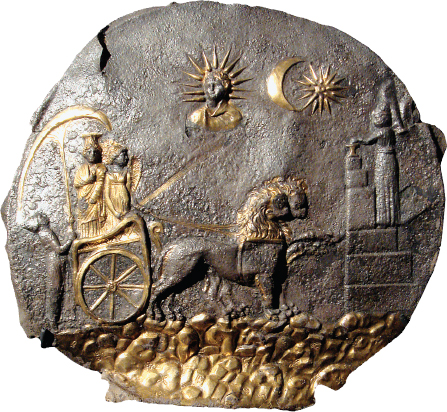Greeks and Non-Greeks
Across the Hellenistic world the prevailing institutions and laws became Greek. Everyone, Greek or non-
Cultural influences in the other direction occurred less frequently because they brought fewer advantages. Few Greeks learned a non-
Yet the spread of Greek culture was wider than it was deep. Hellenistic kingdoms were never entirely unified in language, customs, and thought. The principal reason for this phenomenon is that Greek culture generally did not extend far beyond the reaches of the cities. Many urban residents adopted the aspects of Hellenism that they found useful, but people in the countryside generally did not embrace it, nor were they encouraged to.

Ptolemaic Egypt provides an excellent example of this situation. The indigenous people were the foundation of the kingdom: they fed it by their labor in the fields and financed its operations with their taxes. Because of this, the Ptolemies tied local people to the land more tightly than they had been before, making it nearly impossible for them to leave their villages. The Ptolemies maintained separate legal systems for Greeks and Egyptians. The bureaucracy of the Ptolemies was relatively efficient, and the indigenous population was viciously and cruelly exploited.
The situation was somewhat different in the booming city of Alexandria, founded by Alexander to be a new seaport, where there had been a small village earlier. Within a century of its founding, it was probably the largest city in the world, with a population numbering in the hundreds of thousands. The ruling elite was primarily Greek, and the Ptolemies tried to keep the Greek and Egyptian populations apart, but this was not always possible. Although the Ptolemies encouraged immigration from Greece, the number of immigrants was relatively low, so intermarriage increased. And the Ptolemies themselves gave privileges to local priests, building temples and sponsoring rituals honoring the local gods. Priestly families became owners of large landed estates and engaged in other sorts of business as well, becoming loyal supporters of the Ptolemaic regime. Even the processions honoring local gods still celebrated Greekness, however, and sometimes became a flash point that sparked protests by Egyptians.
In about 280 B.C.E., the Ptolemies founded a library in Alexandria that both glorified Greek culture and sponsored new scholarship. It eventually contained hundreds of thousands of papyrus scrolls of Greek writings. The library became one of the foremost intellectual centers of the ancient world, pulling in Greek-
Greek culture spread more deeply in the Seleucid kingdom than in Egypt, although this was not because the Seleucids had an organized plan for Hellenizing the local population. The primary problem for the Seleucids was holding on to the territory they had inherited. To do this, they established cities and military colonies throughout the region to nurture a vigorous and large Greek-
>QUICK REVIEW
What role did cities play in the spread of Greek culture throughout the Mediterranean world and the Near East?